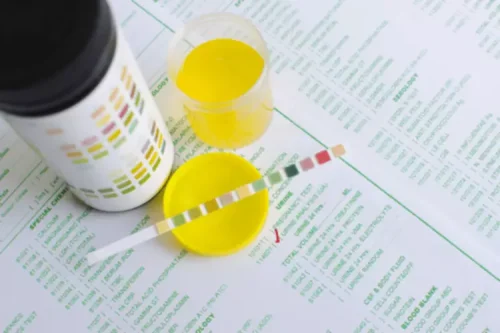
European warnings have lagged far behind the U.S., largely due to entrenched cultural attitudes about drinking. It wasn’t until the early 2000s that France started putting warnings for pregnant women on its drink labels. According the European Journal of Clinical Nutrition, in Italy gynecologists don’t recommend that women avoid alcohol during pregnancy. And until only 2016, women in the United Kingdom were advised not to consume more than “two units” of alcohol a week (National Institute for Health Research). The Royal College of Obstetricians and Gynecologists recommended the avoidance of alcohol during pregnancy, but only in the first trimester, with light drinking permitted in the second and third trimester. The United Kingdom finally revised these recommendations to indicate that no amount of alcohol consumption is safe during pregnancy.
Risks of Alcohol

By being informed about drinking alcohol, you can make better decisions for your reproductive health. Did you know that excessive alcohol consumption can reduce fertility in both men and women by up to 50%? Understanding the impact of drinking small amounts of alcohol on fertility is crucial for anyone trying to conceive a baby and considering standard drinks for a healthy birth. Many people underestimate how their drinking habits can affect reproductive health.
- And if you’re drinking, that’s weeks of drinking during pregnancy.
- Recognizing personal tolerance levels helps in making informed choices about drinking.
- Mindful drinking encourages awareness of how much alcohol you consume.
- That’s partly because you may be pregnant before you realize it.
- In the United States, a «standard drink» is defined for as any alcoholic beverage that contains 0.6 fluid ounces (14 g) of pure alcohol.
- Identify the feelings, people, or places that make you want to drink and do your best to avoid them.
Long-Term Effects
Aside from the clear risk of fetal harm from drinking during an early pregnancy, there is evidence that moderate drinking may affect fertility as well. In women, studies have found that long term moderate drinking may negatively impact ovarian reserve, or the number and quality of your eggs. In other words, even moderate drinking can have an effect on a woman’s what is social drinking reproductive potential. Another study published in the Annals of Epidemiology, found that women who exercise, work, and take multivitamins were also more likely to report drinking in the first month of pregnancy. Researchers found no link between moderate alcohol use and low birth weight, preterm birth, or congenital malformations.

Alcohol Quiz
- However, there are several reasons why you might want to abstain from drinking alcohol altogether during this phase.
- There is no blame or judgment, you just want to have your baby get the care they need.
- Still, experts say that even light or moderate alcohol during any stage can affect fetal growth and development, so it’s best to be cautious.
- Being informed about the effects of drinking on fertility and pregnancy helps in making better choices.
- Research indicates that high alcohol consumption can affect sperm quality.
Recovering from alcohol use can be emotionally challenging, especially during IVF treatments. Many individuals struggle with anxiety about fertility and the pressures of treatment. Seeking support from professionals or support groups can provide valuable assistance during this time. Halfway house Many individuals notice a weight loss after they stop drinking. This is often because alcohol contains empty calories that add up quickly.
Alcohol can impact fertility in both men and women, with its effects influenced by factors such as the amount and frequency of consumption. For example, heavy drinking can lead to loss of libido in women9 and men,10 which can make it more difficult to conceive. Drinking alcohol regularly can also make you gain weight,11 making it harder to get pregnant. You can drink in moderation while trying to get pregnant.2 For most people, this means3 having two drinks or fewer in a day if you’re a man and one drink or less in a day if you’re a woman. However, there are several reasons why you might want to abstain from drinking alcohol altogether during this phase. Many individuals have shared success stories about improving their fertility after stopping alcohol use.
Alcohol consumption can interfere with the communication pathways in your brain,4 leading to disruptions in mood, behavior, and cognitive function. Which babies will be affected from prenatal alcohol exposure varies based on genetics, nutrition, environmental factors and exposure to other substances like cigarette smoking. It is hard to predict which babies will be affected and how severely they will be affected from prenatal exposure to alcohol.
Not exactly the news most of us want to hear, but unfortunately alcohol consumption can affect our fertility (in both women and men) and therefore, our chances of conceiving. According to the American Pregnancy Association only 30 percent of couples will get pregnant during their first cycle of trying, and only 60 percent of couples will get pregnant after about three months of trying. For most couples (80 percent), it will take about six months of trying to get pregnant.

Alcohol Use and Pregnancy: A Brief History of Bad Advice
Yet, these studies were used as propaganda to support prohibition. Those arguing for temperance often exaggerated claims about the dangers of alcohol use. These studies and claims were finally rejected wholesale in 1933 to support the repeal of prohibition. By the 1930s widespread belief was that alcohol use during pregnancy was safe.
- GlowGPT content was prepared by staff writers at Glow with the help of AI tools.
- For instance, men who drink socially might maintain better sperm health compared to those who drink heavily every day.
- Drinking even moderate amounts may lead to miscarriage and you should not drink if you know you are pregnant or trying to get pregnant.
- Support from loved ones during recovery can be vital for emotional support.
- Although the image of a romantic evening including wine or some sort of delicious mixed drink might sound like a great way to set the mood, it is not worth it.
- The truth is, it is unclear how alcohol affects fertility exactly so the impact of this factor isn’t as clear cut.
A pediatric medical home provider and/or other pediatric or developmental specialists usually make the FASD diagnosis after one or more appropriate evaluations. Be sure to ask your pediatrician if you are worried that your child may have an FASD and need further evaluation. There are concerns about long-term, repeated exposures of infants to alcohol via breast milk, so moderation is advised. Frequent consumption of alcohol may also reduce milk production. Set clear limits for yourself, choose non-alcoholic alternatives, and seek support from friends or professionals.
